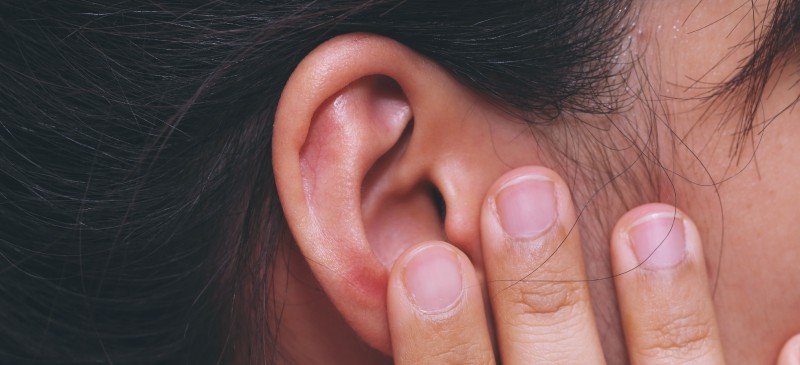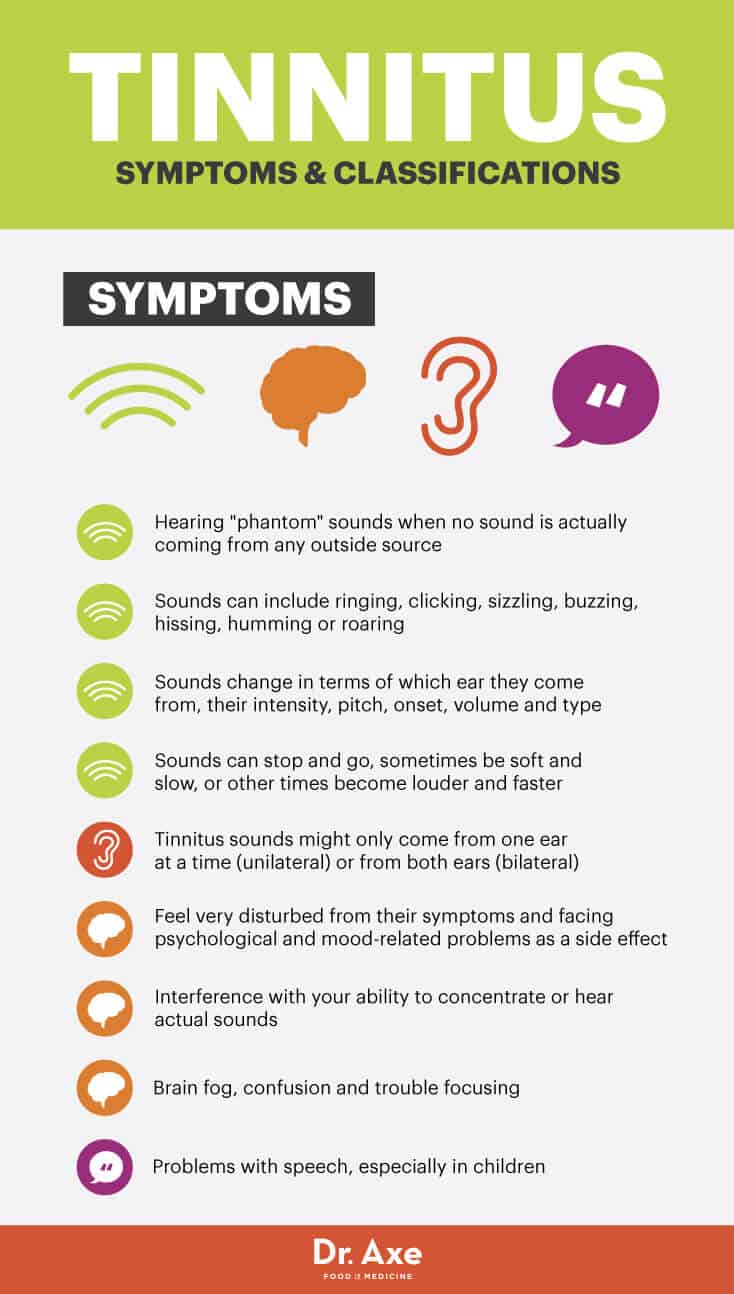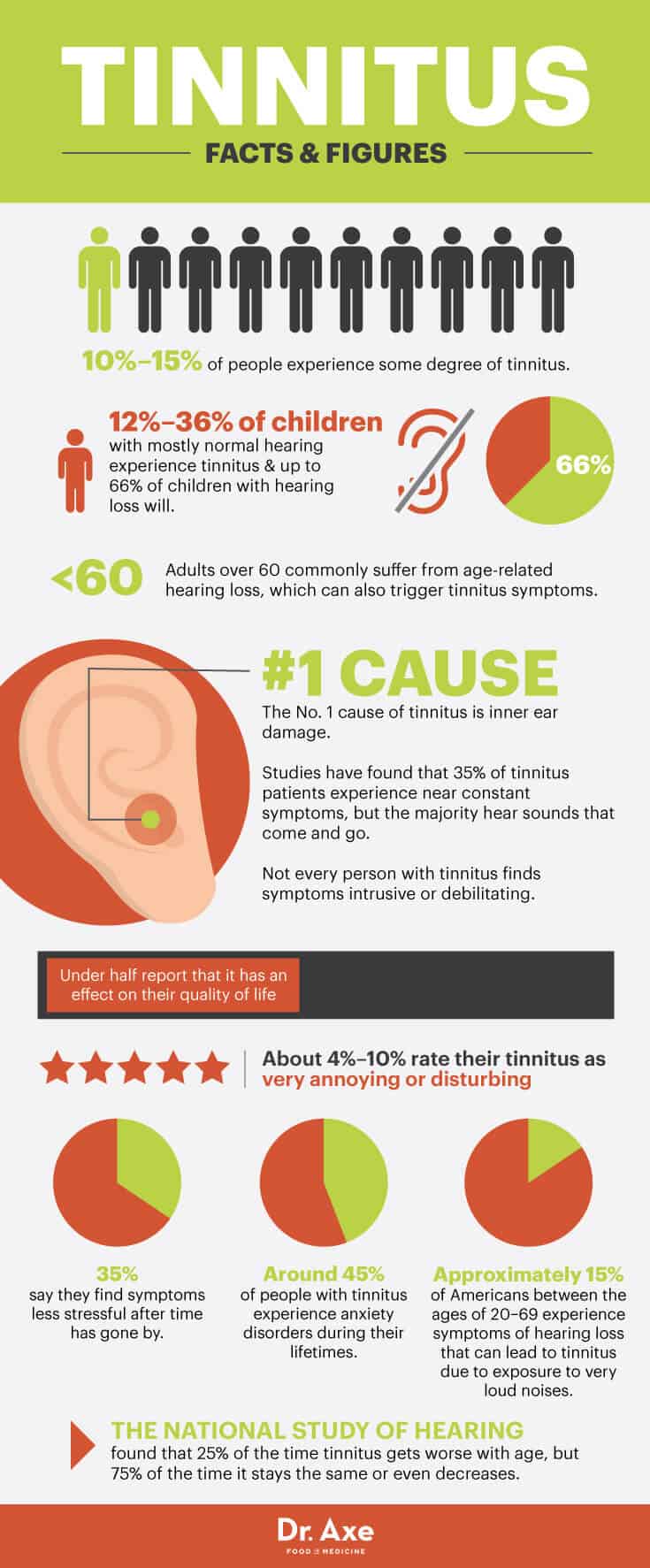This Dr. Axe content is medically reviewed or fact checked to ensure factually accurate information.
With strict editorial sourcing guidelines, we only link to academic research institutions, reputable media sites and, when research is available, medically peer-reviewed studies. Note that the numbers in parentheses (1, 2, etc.) are clickable links to these studies.
The information in our articles is NOT intended to replace a one-on-one relationship with a qualified health care professional and is not intended as medical advice.
This article is based on scientific evidence, written by experts and fact checked by our trained editorial staff. Note that the numbers in parentheses (1, 2, etc.) are clickable links to medically peer-reviewed studies.
Our team includes licensed nutritionists and dietitians, certified health education specialists, as well as certified strength and conditioning specialists, personal trainers and corrective exercise specialists. Our team aims to be not only thorough with its research, but also objective and unbiased.
The information in our articles is NOT intended to replace a one-on-one relationship with a qualified health care professional and is not intended as medical advice.
Natural Tinnitus Treatment Methods to Stop Ringing in the Ears
August 5, 2016

Do you ever get ringing in your ears? Worse yet, does it happen often? There’s a chance you have tinnitus, but all hope is not lost, as there are natural tinnitus treatment options out there.
A 2014 report published in the journal Frontiers in Neurology states, “Tinnitus is one of the most common somatic symptoms to affect humanity.” (1) In Latin, the word tinnire means “to ring.” What is tinnitus exactly, and might it be the cause for the strange sounds or sensations you’re experiencing in your ears?
Most experts refer to tinnitus as the condition that causes ringing in the ears, however other abnormal sounds and sensations can also be attributed to tinnitus. The definition of tinnitus is “the perception of noise or ringing in the ears.” Some also describe this condition as “hearing sounds in the ears when no external sound is present.” Although tinnitus is only a significant problem for about 1 percent to 5 percent of the population, up to 10 percent to 15 percent of all children and adults are believed to experience ringing in the ears at least from time to time.
According to the American Tinnitus Association, this complex audiological and neurological condition is experienced by nearly 50 million Americans. (2) Older adults, men, people who smoke or use drugs, and those with a history of ear infections or cardiovascular disease have the highest risk for developing tinnitus. Most experts believe that it’s not a disorder itself, but rather one symptom of another underlying disorder that affects auditory sensations and nerves near the ears. However, there are tinnitus treatment options out there to treat those symptoms.
For many, tinnitus symptoms come on gradually and eventually go away as the brain and ears adjust. However, for others tinnitus can last for years and cause various complications. A high percentage of people with tinnitus that’s persistent and untreatable go on to also develop anxiety or depression as a result. What types of things can you do to deal with and lower tinnitus symptoms? Tinnitus treatment includes avoiding excessively loud sources of noise pollution, using certain hearing aids, preventing ear infections and avoiding drug use.
Natural Tinnitus Treatment
Most cases of tinnitus are unfortunately thought to be difficult to treat, and sometimes severe tinnitus cannot be treated at all when permanent and irreversible damage to the ears or nerves has occurred. That being said, many patients find natural tinnitus treatment methods and coping strategies to be very helpful in allowing them to adjust to the changes that tinnitus brings. Here are six of those tinnitus treatment options:
1. Counseling, Coping Strategies and Education
Experts recommend that patients with severe tinnitus become educated about tinnitus and how they best deal with its symptoms. This can include learning about biofeedback in order to control stress and your reaction to tinnitus sounds, talking with a counselor, or joining a support group. Coping strategies are most useful for managing emotional side effects of tinnitus, such as anxiety, trouble sleeping, lack of focus and depression.
Some patients choose to get involved in “tinnitus retraining,” which involves wearing a device in the ears that provides soothing music or noise, along with undergoing counseling. The goal is to help your body and brain learn to get accustomed to tinnitus noise, which reduces your negative reactions to unwanted sounds. Support and counseling during the process can be helpful for reducing anxiety. Researchers are now learning more about the benefits of coherent cognitive behavioral therapy interventions to help treat distress associated with tinnitus. (3)
2. Masking Devices
Masking devices and hearing aids can serve as sound therapies and be used to dull the intensity of unwanted sounds — or to increase volume of soft, environmental sounds — which drown out nagging tinnitus noise. (4)
Some people choose to use a white noise machine, apps on their phones or videos on their computers to help them sleep, relax or concentrate. There are also now electronic devices available that can help suppress unwanted noise and help with tinnitus treatment. Devices for tinnitus treatment to improve hearing and lower disturbing sounds include:
- White noise machines or sleep machines
- Masking devices that are worn in the ears, similar to earplugs or hearing aids
- Certain hearing aids, which your doctor can recommend and custom fit to your ears
- Free apps on your phone that play soothing sounds, such as falling rain, forests or ocean waves. These can also work as natural sleep aids to improve sleep when you’re feeling anxious.
- Using natural sources of light noise, such as fans, humidifiers, dehumidifiers and air conditioners
3. Avoid Very Loud Noises
It’s been found that exposure to very loud noises can contribute to early hearing loss and ear problems. Loud sounds can include those from heavy machinery or construction equipment (such as sledge hammers, chain saws and firearms). Even gun shots, car accidents, or very loud concerts and events can trigger acute tinnitus, although this should go away within a couple days in some cases. (5)
Sounds of less than 75 decibels (even after long exposure) are unlikely to cause hearing problems or tinnitus, but those above 85 decibels can cause hearing loss and ear problems. To give you an idea of how loud this is: A refrigerator is about 45 decibels, while a gun shot is about 150 decibels.
Technology and portable music devices also contribute to noise pollution, especially in younger people. Keep the volume of your phone, MP3 players or iPod on the lower end when listening to headphones, and don’t play very loud noises for long durations of time. To aid in tinnitus treatment, look out for changes in your ability to hear if you’re frequently exposed to loud noises, limit use of headphones or consider wearing earplugs.

4. Don’t Use Q-tips in Your Ear
Many people try to clean out natural earwax from their ears with Q-tips, but this can actually contribute to earwax blockages, ear infections and ear damage. Earwax protects your ear canal by trapping dirt and bacteria, so allow it to do its job.
To avoid irritation or damaging the inside ear, don’t stick anything inside the ear canal. This can actually make tinnitus treatment more difficult. If you have excessive earwax, talk to a doctor about safely removing it so earwax doesn’t accumulate and become too hard to wash itself away naturally.
5. Avoid Overly Using Prescriptions, Drugs or Alcohol
Research shows that some medications and drugs, even over-the-counter painkillers, can make tinnitus worse. Using recreational drugs (especially when pregnant, which can damage a fetus’s nerves), smoking and drinking too much alcohol are also tied to tinnitus.
Talk to your doctor about changing your medication, lowering your dose or finding another way to manage any conditions you might have. Medications that can contribute to ear damage and cause tinnitus include:
- Antibiotics: polymyxin B, erythromycin, vancomycin and neomycin
- Cancer medications: mechlorethamine and vincristine
- Diuretics: bumetanide, ethacrynic acid or furosemide
- Quinine medications
- Some antidepressants
- Aspirin when taken in high doses (usually 12 or more a day)
6. Reduce Inflammation and Chronic Stress
Stress and high levels of inflammation both seem to raise the risk for ear problems, including ear infections, hearing loss and vertigo. On top on that, stress can make tinnitus symptoms worse by changing how your brain reacts to noises it hears.
Research regarding using cognitive behavioral therapy for tinnitus shows that tolerance to tinnitus can be facilitated by “reducing levels of autonomic nervous system arousal, changing the emotional meaning of the tinnitus, and reducing other stresses.” (6) It’s been found that there’s some overlap in anxiety and tinnitus due to an association between subcortical brain networks involved in hearing sounds, attention, distress and memory functions.
A poor diet, sedentary lifestyle, lack of sleep and chronic stress are all capable of reducing immunity and making you susceptible to nerve damage, allergies and ear problems. If you frequently experience seasonal or food allergies that affect your ears, ear infections, swelling and other problems related to damage of the vestibular system, consider changing your diet, exercise routine and ways of dealing with stress, which in turn will aid your tinnitus treatment. Try natural stress relievers like exercising, yoga, meditation, taking warm baths, using essential oils and spending more time outdoors, and eat an anti-inflammatory diet.
Tinnitus Symptoms
The most common signs and symptoms of tinnitus include: (7)
- Hearing “phantom” sounds when no sound is actually coming from any outside source. Sounds can include ringing, clicking, sizzling, buzzing, hissing, humming or roaring. Tinnitus sounds are commonly described by patients as being like “the sounds of escaping air, heartbeat, breathing or the inside swirling of a seashell.”
- Many people report that the sounds change in terms of which ear they come from, their intensity, pitch, onset, volume and type. Sounds can stop and go, sometimes be soft and slow, or other times become louder and faster.
- Tinnitus sounds might only come from one ear at a time (unilateral) or from both ears (bilateral).
- Rarely, it’s also possible to hear musical sounds or voices, although the underlying cause of this experience can include other psychological problems or even drug use.
- In addition to hearing sounds in the ears, many people with tinnitus feel very disturbed from their symptoms and face psychological and mood-related problems as a side effect. It’s common to deal with anxiety, depression, irritability, fatigue, insomnia or even thoughts of suicide in severe cases over having to battle tinnitus that can’t be cured.
- Loud sounds caused by tinnitus can interfere with your ability to concentrate or hear actual sounds, which leads to brain fog, confusion and trouble focusing. It might also cause problems with speech, especially in children. (8)
- Tinnitus might also get worse with age and is most common among older adults who suffer from general hearing loss. Some 27 percent of older and elderly adults report having tinnitus, many of them seemingly due to factors like loud workplaces. (9) The elderly commonly experience tinnitus and hearing loss due to symptoms associated with circulatory problems, inflammation and nerve damage.
Tinnitus is classified in several ways depending on the symptoms it causes:
- Subjective tinnitus: Sounds are only able to be heard from the patient themselves. The term for sounds that are heard inside the ears is “tinnitus aurium,” while the term for sounds heard inside the head is “tinnitus cerebri.”
- Objective tinnitus: Amazingly, when a patient has objective tinnitus and a doctor uses a stethoscope near the affected ear, the doctor can also pick up the sounds.
Tinnitus Risk Factors and Causes
Experts believe that tinnitus is associated with neural (brain and nerve) injuries that affect the auditory pathway and therefore someone’s ability to hear sounds. (10) Most of the time, tinnitus is a result of a disorder that affects parts of either the outer, inner or middle ear. The good news is that the majority of cases are not linked to any serious illness, although some cases are.
It’s been observed in people with tinnitus that they experience abnormal and random firings of sensory and auditory neurons that people without tinnitus don’t experience.
Some risk factors believed to be tied to tinnitus include:
- A history of ear disorders or ear infections
- Cardiovascular disorders that affect blood flow, arteries and the nerves
- Nerve damage
- Older age
- Being male
- Smoking
- Experiencing TMJ symptoms, jaw, head or neck injuries
- Overcoming an upper respiratory infection, a cold or ear infection
- History of drug use or excessive alcohol consumption, which can cause neurological changes
- Having acute anxiety, insomnia or depression
- Being exposed to high amounts of “noise pollution.” This might include having a job that exposes you to high-pitched noises or even wearing very loud headphones frequently
- Hearing loss that is tied to aging (called presbycusis)
There are many different conditions and disorders that affect nerve channels leading to the ears, which can cause someone to hear abnormal ringing or other sounds in their ears. These conditions usually cause other symptoms at the same time (such as dizziness, hearing loss, headaches, facial paralysis, nausea and loss of balance), which doctors use as clues to uncover the underlying cause of tinnitus.
Some specific conditions that are known to cause symptoms of tinnitus include:
- Ear canal obstructions, infections, injuries or surgeries. This can include ossicle dislocation within the ear that affects hearing or recurring ear infections (like swimmer’s ear) either in the outside or inside of the ear canal (otitis media or otitis externa). Other ear disorders tied to tinnitus include otosclerosis (causes changes to the bones inside the ears), tympanic membrane perforation or labrynthitis (chronic infections or viruses that attack tissue in the ears).
- Inner ear damage is the most common type of ear disorder that causes tinnitus. This changes the way tiny hairs inside the ears move in relation to the pressure of sound waves, causing false electrical signals to be sent through the auditory nerves to your brain.
- Cranial nerve tumors that affect parts of the brain connected to sound and hearing (acoustic neuroma).
- Anemia. This also causes weakness, changes in heartbeat and pulse, and fatigue.
- Arteriosclerosis or hypertension. Hardening of the arteries or high blood pressure cuts off normal blood flow and affects nerve signals leading to the ears.
- Cervical spondylosis. A degenerative disorder that compresses arteries leading to the neck and ears.
- Sinus infections
- Labyrinthitis (inflammation in the inner ear, usually after an infection)
- Earwax buildup
- Vertigo
- Muscle stress or physical fatigue
- Eardrum rupture
- Bell’s palsy
- Temporomandibular joint arthralgia (TMJ)
- A rapid change in pressure in the environment
- Significant weight loss from malnutrition
- Long-term holding of the head in a hyperextended position
- Problems with the nerves, such as multiple sclerosis or with migraine headaches
- Thyroid problems
- Hormonal changes (in women)
- Heart or blood vessel disease, including high blood pressure and preeclampsia
- Meniere’s disease. A rare and serious inner-ear disorder that develops after fluid accumulates in the inner ear abnormally, causing pressure levels to change within the ear.
- Eustachian tube patency. This is one of the passages that opens and closes in the throat. It’s usually closed except when someone swallows, but if it becomes damaged it can remain open, which leads to abnormal sound sensations of the breath.
- Overdosing on certain prescription drugs, recreational drugs or alcohol. This can sometimes cause permanent damage to nerves that affect hearing. In some cases when a pregnant women uses drugs during pregnancy, this can cause tinnitus to develop in her child. Common drugs that might contribute to tinnitus include ototoxics, psychotropic drugs, aminoglycosides, certain antibiotics and vancomycin.
If you suspect you might have tinnitus, here is what you can expect during a doctor’s visit:
- Your doctor will discuss your medical history (including any history of anxiety, neurological disorders or ear disorders).
- Next, the doctor will likely perform a physical exam of your ears to examine the tympanic membrane, which is tied to noise perception. It’s also possible he or she will check your neck, genitals, major arteries, blood pressure and breathing to check for signs of nerve damage or impaired blood flow.
- He or she will ask questions about the sounds you’re hearing. You will be asked to describe the pitch, location, frequency, intensity and types of sounds you experience.
- Your doctor will also check for other symptoms occurring at the same time, including headaches, hearing loss, or those associated with anxiety and vertigo.
- Likely you’ll be asked about your history of drug use, since this can sometimes contribute to changes in sense perceptions.

Tinnitus Facts and Figures
- In the general population, 10 percent to 15 percent of people experience some degree of tinnitus.
- The prevalence rate of tinnitus varies from 12 percent to 36 percent in children with mostly normal hearing and up to 66 percent of children with hearing loss.
- Adults over 60 years old commonly suffer from age-related hearing loss, which can also trigger tinnitus symptoms.
- The No. 1 cause of tinnitus is inner ear damage. Damage to delicate hairs in your inner ear changes auditory signals and can be triggered by infections or injury.
- Certain studies have found that 35 percent of tinnitus patients experience near constant symptoms, but the majority hear sounds that come and go.
- Not every person with tinnitus finds symptoms intrusive or debilitating. Under half report that it has an effect on their quality of life, only about 4 percent to 10 percent rate their tinnitus as very annoying or disturbing, and 35 percent say they find symptoms less stressful after time has gone by.
- However, anxiety is highly associated with tinnitus when symptoms are bad. Research shows around 45 percent of people with tinnitus experience anxiety disorders during their lifetimes. (11)
- A study done by the National Study of Hearing found that 25 percent of the time tinnitus gets worse with age, but 75 percent of the time it stays the same or even decreases.
- Approximately 15 percent of Americans between the ages of 20–69 experience symptoms of hearing loss that can lead to tinnitus due to exposure to very loud noises.
Precautions with Tinnitus Treatment
- Tinnitus can sometimes be triggered temporarily from acute illnesses like a fever, cold or infection. If symptoms last for more than one week after you’ve recovered, see a doctor to make sure another condition isn’t to blame.
- If you notice symptoms of tinnitus that occur suddenly or without any apparent cause, also check with your doctor. This is especially important if you have other symptoms, such as dizziness and sudden loss of hearing.
- Because tinnitus is linked to sometimes serious depression or anxiety, it’s recommended you always speak with a counselor if you’re struggling to manage tough feelings associated with tinnitus on your own.
Final Thoughts on Tinnitus Treatment
- Tinnitus is the term for unexplained ringing in your ears or hearing other noises that other people cannot hear.
- Tinnitus is most likely to affect older people, men more often than women, those with past ear damage, or anyone with hearing loss.
- Symptoms of tinnitus include ringing in the ears, buzzing, humming and other noise sensations, along with anxiety and sometimes headaches or dizziness.
- Natural tinnitus treatment options include using sound machines, hearing devices or aids, preventing ear infections, reducing noise pollution exposure, and cognitive behavioral therapy.







